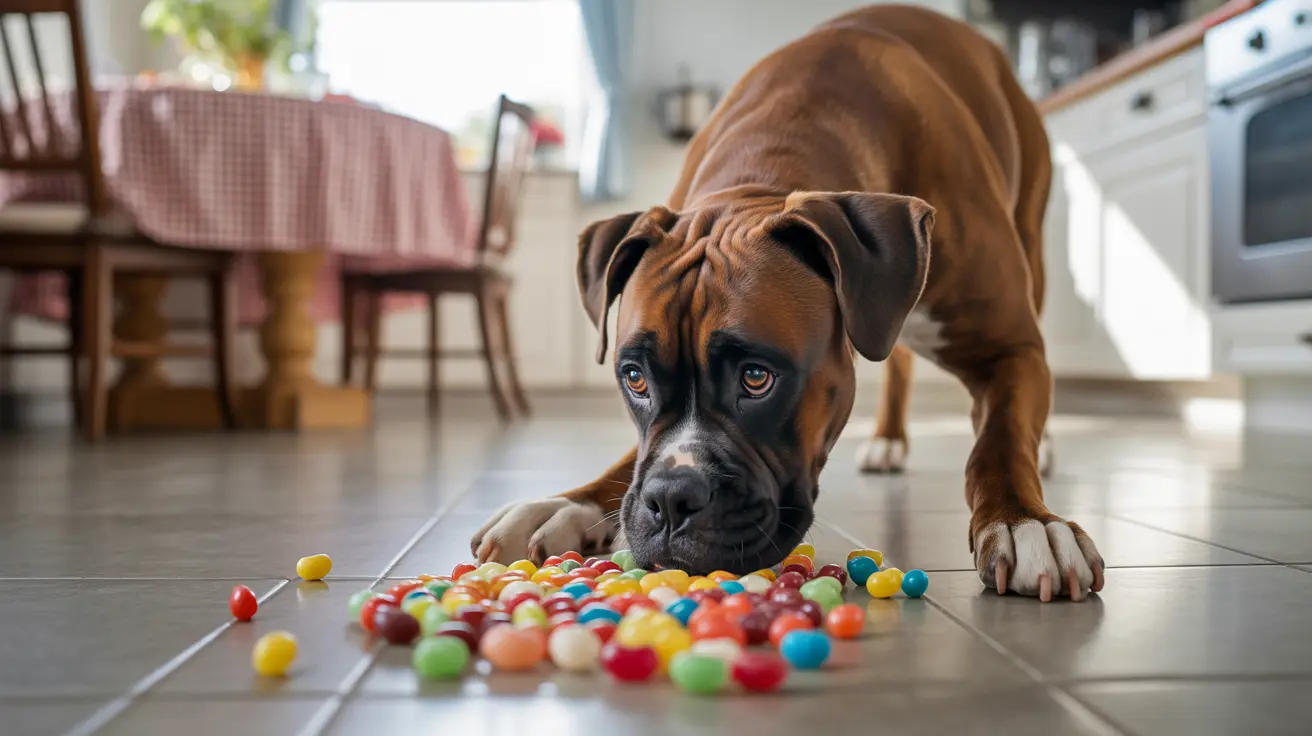The Hidden Dangers of Jelly Beans for Dogs
Jelly beans may seem harmless, but they contain several ingredients that can be hazardous to your dog's health. Beyond offering zero nutritional value, these candies often harbor components that range from mildly problematic to potentially lethal for canines.
Xylitol: A Life-Threatening Ingredient
Perhaps the most dangerous ingredient found in sugar-free jelly beans is xylitol. This artificial sweetener can cause a rapid and dangerous drop in your dog's blood sugar levels and may lead to severe liver damage. Even a small amount can be life-threatening, especially for smaller dogs.
Caffeine Content Concerns
Some specialty jelly beans, particularly those marketed as energy or sports beans, contain caffeine. Dogs are much more sensitive to caffeine than humans, and ingestion can lead to serious health complications including irregular heart rhythm, seizures, and in severe cases, death.
Health Impacts of Regular Jelly Beans
Even jelly beans without xylitol or caffeine can cause problems for your dog:
- High sugar content leading to obesity and diabetes
- Artificial colors and flavors causing digestive upset
- Dental problems from sticky sugar residue
- Potential choking hazards, especially for small dogs
Immediate Actions if Your Dog Eats Jelly Beans
If your dog consumes jelly beans, take these immediate steps:
- Check the product packaging for ingredients
- Note how many jelly beans were consumed
- Contact your veterinarian or pet poison control
- Monitor your dog for concerning symptoms
- Don't wait for symptoms to appear if toxic ingredients are present
Signs of Jelly Bean Toxicity in Dogs
Watch for these warning signs after jelly bean consumption:
- Vomiting and diarrhea
- Lethargy or extreme excitability
- Difficulty walking or coordination problems
- Seizures or tremors
- Excessive drooling
- Rapid breathing or heart rate
Frequently Asked Questions
Are jelly beans safe for dogs to eat?
No, jelly beans are not safe for dogs. They contain ingredients that can be toxic, such as xylitol and caffeine, and offer no nutritional value while posing various health risks.
What happens if my dog eats jelly beans that contain xylitol?
If your dog consumes jelly beans containing xylitol, they may experience dangerous drops in blood sugar, liver failure, seizures, and other severe symptoms. Immediate veterinary care is essential.
Can caffeine in some jelly beans be toxic to my dog?
Yes, caffeine in jelly beans can be toxic to dogs. It can cause restlessness, rapid heart rate, high blood pressure, seizures, and other serious complications.
What symptoms should I watch for if my dog eats jelly beans?
Monitor for vomiting, diarrhea, lethargy, unusual excitement, difficulty walking, seizures, and changes in breathing or heart rate. Contact your vet immediately if these symptoms appear.
What should I do if my dog accidentally consumes jelly beans?
Contact your veterinarian immediately, check the ingredient list for toxic substances like xylitol or caffeine, and be prepared to provide information about the quantity consumed and your dog's weight.
Remember, prevention is always better than treatment. Keep all candy, including jelly beans, safely out of your dog's reach, and opt for veterinarian-approved treats instead. Your dog's health and safety should always come first when considering human foods and treats.






